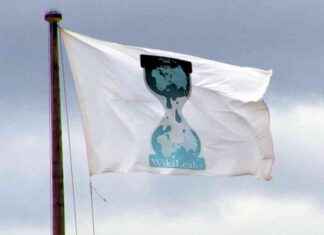According to a report by Europol, organized crime is increasingly infiltrating Europe’s major ports. “Europe’s three largest ports, namely those of Antwerp, Rotterdam and Hamburg, are among the main targets of criminal infiltration,” according to an analysis published by Europol in The Hague.
The gangs would bribe port officials or company employees, smuggle in accomplices and, increasingly, crack the digital security codes on containers. For the first time, security experts analyzed the risks of the major seaports of Antwerp, Rotterdam, Hamburg and Bremerhaven.
According to Europol, the international gangs mainly use container traffic to smuggle cocaine into the EU. The drugs would be hidden among legal goods such as car parts or bananas and then retrieved from the ports. The main ports of entry are Antwerp and Rotterdam.
Record amount of drugs seized
In the past year alone, customs investigators seized a record total of around 200 tons of cocaine there. According to the investigators’ analyses, this is only a fraction of the drugs actually smuggled.
According to the authority, around 90 million containers arrive in the seaports of the EU every year. But only a small part can also be checked for illegal goods.
According to the report, the criminal networks rely primarily on the corruption of port employees. But the bribery of many individuals and thus accomplices also poses great risks for them. That is why the gangs are relying on new methods.
According to the experts’ analysis, they are increasingly aimed at the digital security codes for sea containers. With these codes they could open containers, but they could also easily get them out of the security areas of the ports. Fewer employees would need to be bribed or computer systems hacked to get the codes.
Gangs also smuggled in professional teams themselves to get the goods out of the containers. They used the “Trojan horse method”, as the experts explained. Professional “outhaul teams” are smuggled into the port area and, according to Europol estimates, receive between seven and 15 percent of the value of the illegal cargo – often hundreds of thousands of euros.












